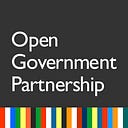Trump’s Pardons and Putin’s Palace Show Why Biden Must Tackle Corruption at Home and Abroad

By Joseph Powell, Deputy CEO of the Open Government Partnership
The corruption continued to the end. A cast of convicted fraudsters, tax dodgers and money launderers littered President Trump’s final pardon list. One clemency went to Elliott Broidy, a former top fundraiser for Mr Trump who had been implicated in illegal lobbying over a multi-billion dollar embezzlement scheme from Malaysia’s sovereign wealth fund. The scandal brought down the country’s former Prime Minister Najib Razak. Trump’s very final act as President, taken minutes before the official transfer of power, was to pardon the tax evading ex-husband of one his favorite Fox News hosts, Jeanine Pirro.
None of this was remotely surprising after four years in which ethics, conflict of interest and the rule of law did not seem to apply to the executive branch of the US government. Contrast this with the extraordinary act of bravery from Russian opposition leader Alexey Navalny, who despite being jailed on his return to Moscow after his near-fatal novichok poisoning, released a viral documentary last week about the construction of President Putin’s palace on the Black Sea. The film has already been viewed almost 100 million times, and details the corruption, bribery and opaque corporate structures used to fund what Navalny claims is the world’s most expensive real estate project. He estimates the palace has cost at least $1.4 billion. These funds flow via Putin’s oligarch friends, who dominate the top positions in many of Russia’s biggest companies, and drain state resources that could improve the lives of ordinary Russians. A single gold toilet brush and toilet paper holder, purchased for one of Putin’s wineries near the palace, cost more than the average annual state pension in Russia. It is no wonder why Putin is so desperate to silence Navalny.

What ties Trump’s pardons and Putin’s palace together is the insidious effect of corruption on democracy. Globally, corruption has been one of the main drivers of 14 years of consecutive decline in civil and political liberties, as liberal democracy has faltered and authoritarianism has been on the rise. This democratic recession has affected long-standing and emerging democracies alike, and has spurred street protests and civil society campaigns the world over. Hungary is a textbook example, where Prime Minister Orbán has used state funds for patronage, ensuring that only close supporters receive high value government contracts and threatening to veto the European Union budget over any checks on his power. Throughout the world, dark money in politics has increasingly fueled disinformation online, and a decline in press freedom and media viability has made accountability harder to achieve. In many places, the pandemic exacerbated these trends, with unchecked state surveillance all too common.
To turn the tide on this democratic backsliding, a major global effort to combat corruption is needed. President Biden highlighted the fragility of democracy in his inaugural address, and is well placed to help lead the charge. This starts with getting America’s own house in order. One of Biden’s first executive orders was on ethics, and has been described by President Obama’s ethics lead Norm Eisen as “the strongest, most ambitious swamp-draining plan ever”. It put restrictions on the “revolving door” of lobbyists joining government, and senior officials in turn joining lobbyists to cash in on their contacts and expertise. Biden can also take forward a vital provision in the National Defense Authorization Act to tackle the abuse of anonymous shell companies in the US, of the type used by Putin to hide the true ownership of his palace. Lobbyists will no doubt try to weaken the final rule with exemptions, but the administration should seek to match regulations in Europe and elsewhere that have started to tackle this problem.
A serious initiative to tackle corruption will take a global coalition. The Obama-Biden administration founded the Open Government Partnership in 2011 to help bring like-minded countries together with civil society leaders to implement the tough reforms that tackle vested interests and elite state capture. Now ten years old, over four thousand reforms have been committed through OGP, including massive opening up of government contracts, lobbying transparency, and open data on government spending so that auditors, citizens and civil society can follow the money and help ensure it’s well spent. President Biden can apply those principles to the next round of COVID recovery funds, and can challenge countries to do the same. This will help increase citizen trust in government, and prevent fraud and corruption that robs resources from those that need it most.

This will set the stage for the Summit for Democracy, one of Biden’s key foreign policy proposals for the first year, where in his words America can lead “not by the example of our power, but by the power of our example”. To plan a meaningful summit, civil society should be engaged in the design, execution and follow up. Too often, summits of heads of state result in little more than warm words and empty promises. The price of admission for any country should be that leaders attending meet with their civil society in advance, make substantive commitments on corruption and democracy at the event, and then make a plan to implement the reforms on their return. USAID, under the leadership of Samantha Power, should make resources available to low income countries to help with these implementation plans.
To save democracy at home, and build a stronger global coalition of democratic allies, the financing for authoritarianism must be made ever harder. Only a strong, diverse coalition of countries and civil society champions, with renewed US engagement, can achieve that goal.
